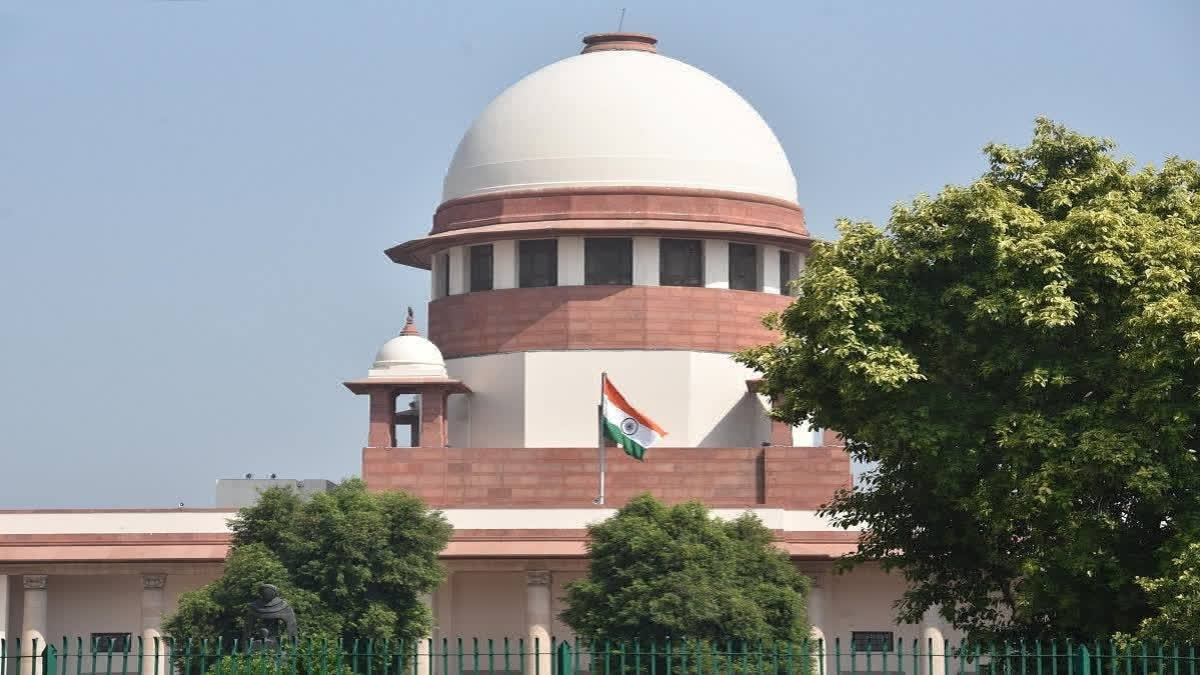New Delhi:The Supreme Court has said that a father being a natural guardian cannot be denied the custody of the minor child while allowing a man's plea seeking custody of his minor daughter from his sisters-in-law. The custody of the child was entrusted to the sisters-in-law after the child’s mother died within 10 days of giving birth due to COVID-19 infection.
A bench comprising Justices B R Gavai and K V Vishwanathan said: "In our opinion, merely because of the unfortunate circumstances faced by the appellant (father) as a result of which, respondent Nos. 5 and 6 (sisters-in-law) were given the temporary custody of the minor child and only because they looked after her for few years, the same cannot be a ground to deny the custody of the minor child to the appellant, who is her only natural guardian".
The top court directed the two women to hand over the custody of the child forthwith to the appellant Gautam Kumar Das. “We find that, apart from the appellant being the natural guardian, even in order to ensure the welfare of the minor child, she should live with her natural family", said Justice Gavai, who authored the judgment on behalf of the bench
Justice Gavai, in a judgment delivered on Tuesday, said the minor child is of tender age, and she will get adapted to her natural family very well in a short period while allowing the appeal filed by the man. However, the bench granted visitation rights to the sisters-in-law to meet the child.
Referring to the case of 'Nirmala Vs Kulwant Singh & Others' (2024), the apex court said: "In the case of Nirmala (supra) in paragraph 16 has also observed that no hard and fast rule can be laid down insofar as the maintainability of the habeas corpus petition in the matters of custody of the minor child is concerned".
The bench said that it has been held that as to whether the writ court should exercise its jurisdiction under Article 226 of the Constitution of India or not will depend on the facts and circumstances of each case. The bench said insofar as the allegations made against the appellant by sisters-in-law are concerned, it appears that they have been made only as an afterthought, and especially after the appellant started asserting his claim for the custody of his minor daughter. The bench observed that it can only say that there cannot be any straight-jacket formula in the matters of custody.
